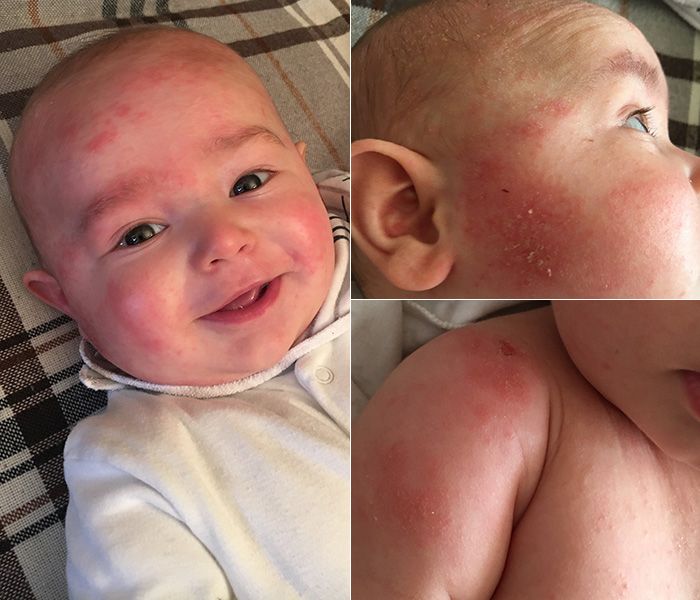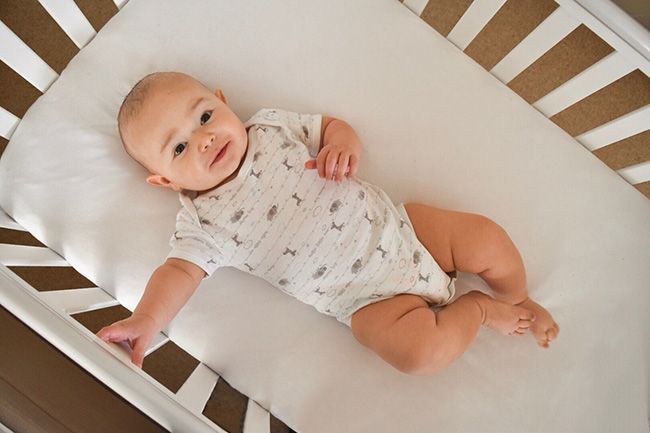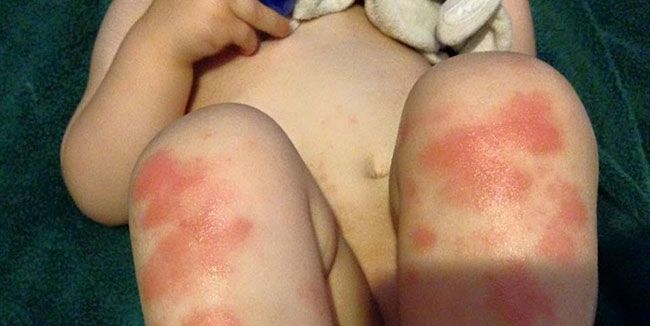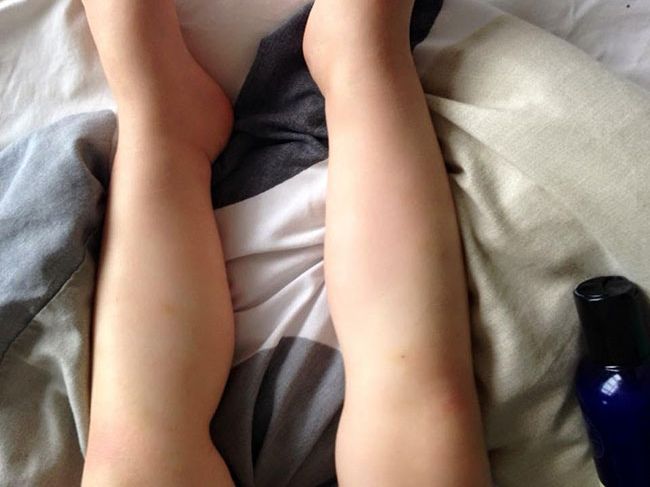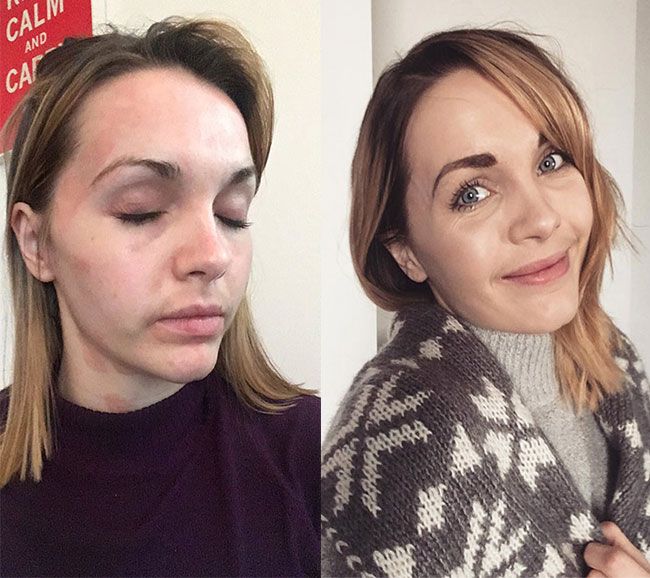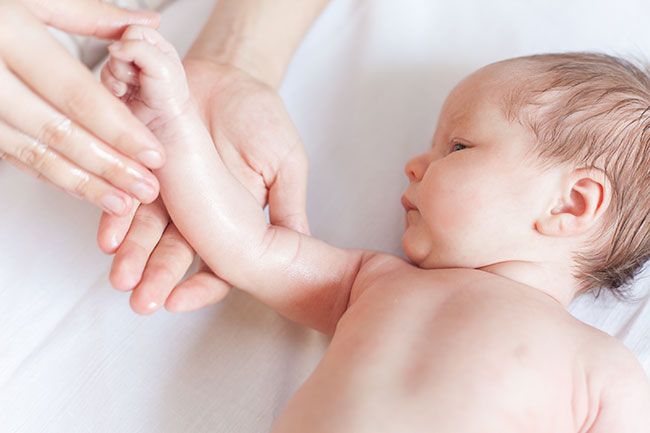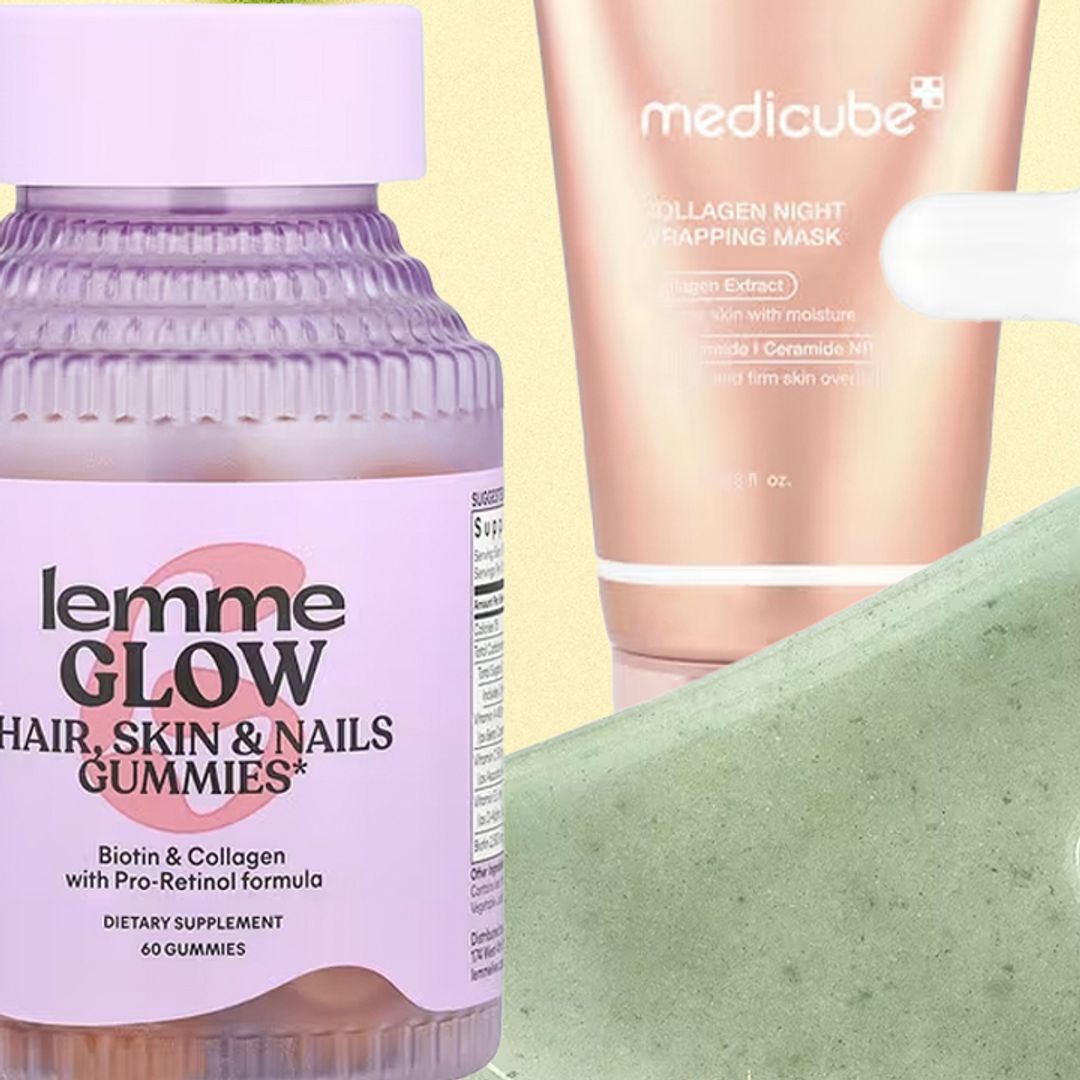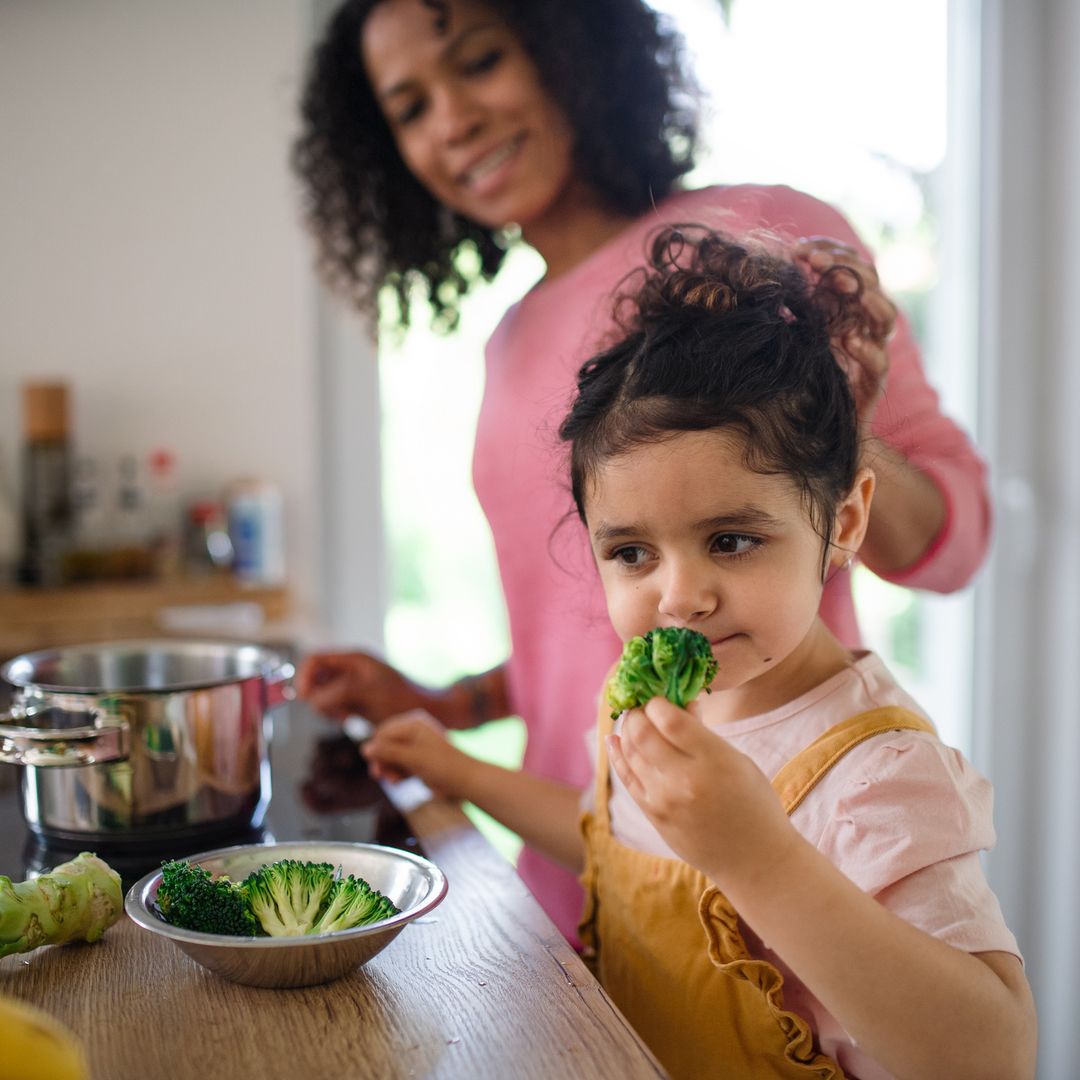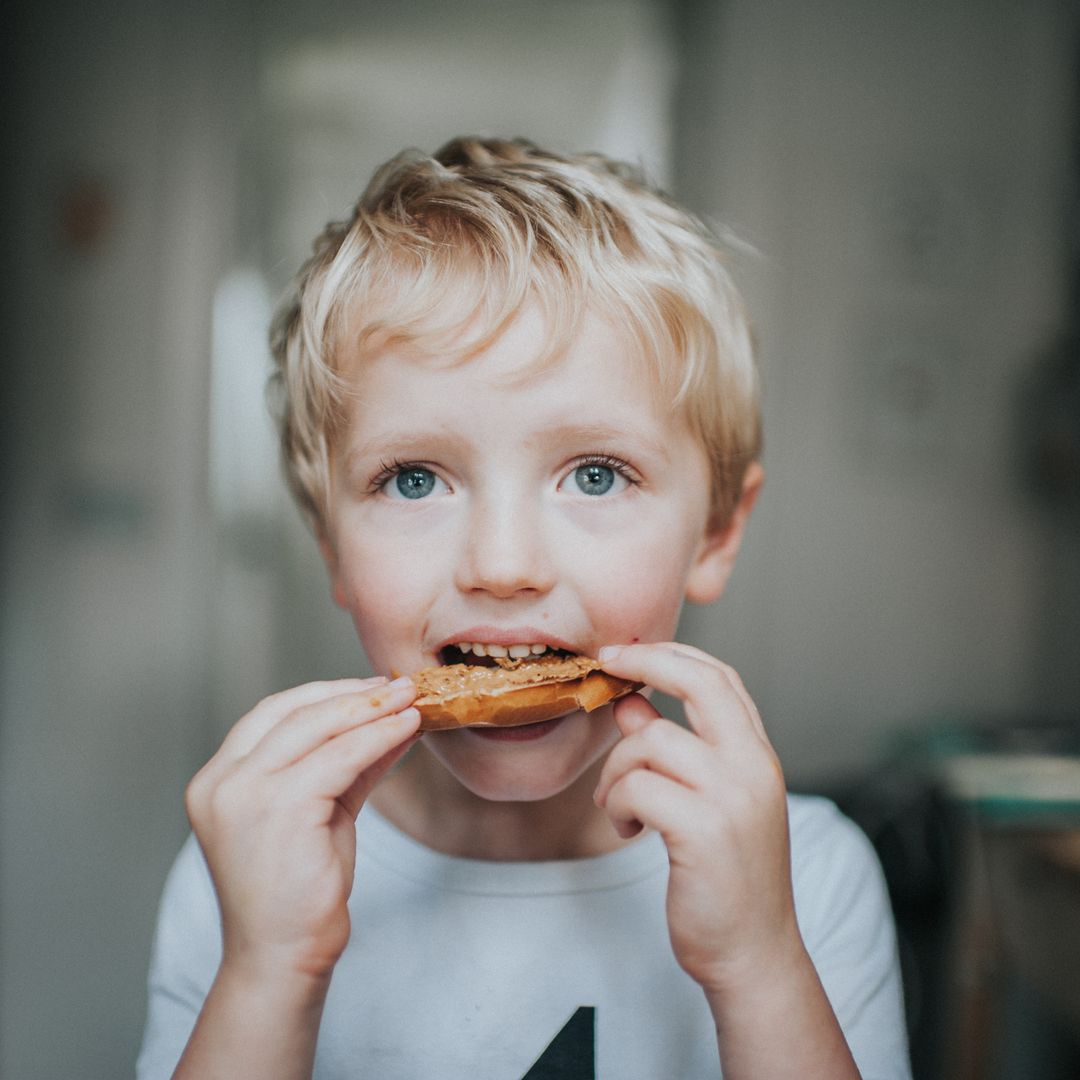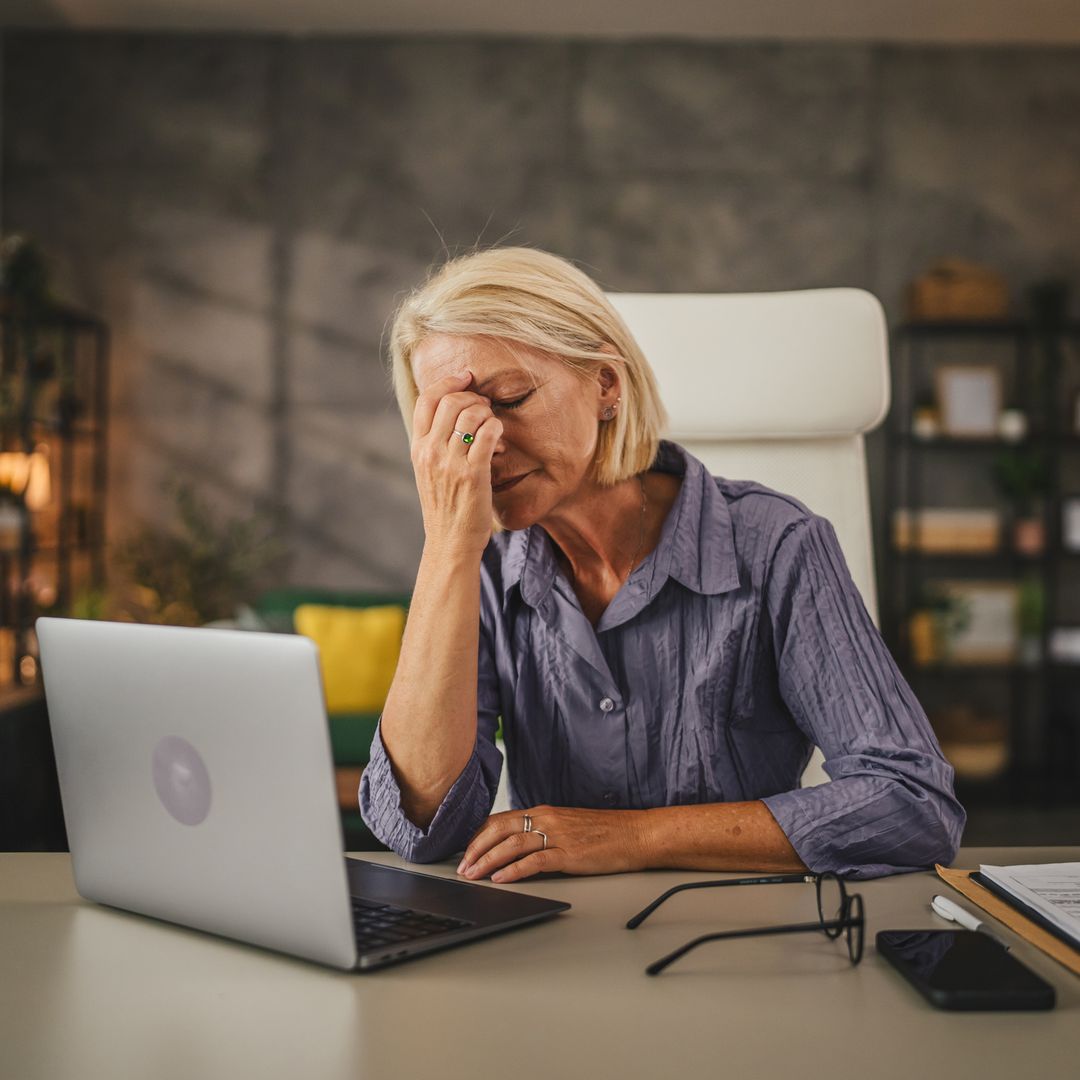Eczema is a common condition that plagues thousands of people in the UK, including children and babies. And whilst it can be painful to experience it yourself, it can be even more difficult to see someone you love struggle to cope with their skin condition - especially when the sufferer is a child. When it comes to finding a cure, no two patients are the same - what works for one may not work for another, and it doesn’t help that the internet is full of contrasting advice and 'miraculous' promises. We don’t have a one-size-fits-all answer here, either. But, as it’s National Eczema Week, we’ve asked real people, real parents, and an expert dermatologist for their recommendations.
THE PARENTS
Andrea, mum to 23-month-old Ethan: "We found out Ethan was allergic to dairy, gluten, egg and certain nuts which was causing his eczema at 6-months-old. It was head to toe, very itchy and hard to get rid of at first because he would scratch himself all the time. As bad as it sounds, keeping his arms secure at night is what mainly worked because he wasn't able to scratch himself, and it helped his skin get better.
Andrea's son spent several months visiting the GP before he was allowed to take an allergy test
"It's very tough for parents to see their child want to scratch themselves and not be able to, but he needed to let the skin heal and it was the only way. After that it was Aveeno three times a day and no soap at bath time. We also had to give up swimming lessons because the chlorine was making it worse. He is now two-years-old and only get eczema on days were it is incredibly hot or very, very cold."
Ethan's eczema now only flares up in extreme weather conditions such as heatwaves or snow
Kate Vaughn-Payne, mum of two: "My eldest son had bad eczema when he was a young baby and even now at 14 it can flare up when he’s anxious about things like exams. He suffers from atopic, patchy eczema that appears on his cheeks, behind his knees and elbows, on his neck and feet (generally in the creases of his skin). Both my husband and I had eczema as children so it wasn't entirely unexpected. I wanted to avoid getting steroid cream so tried to manage it with natural products. I used unscented bath and moisturising products like Oilatum and Doublebase and I changed to non-biological washing powder. I also bought him clothes made from natural fabric. Sun cream is still a problem as he finds it irritates his skin but sadly I think you need chemicals for that. Now he uses scented products but I try to get as natural ones of those as possible - Sam Farmer is a good one."
Lucy Goodwin, mum of three: "Jude was just over a year old when he developed eczema. I took him to the doctors who sent us home with various creams to try, including a steroid cream. It used to get absolutely red raw and got infected a number of times, and he had bad nappy rash at the time as well. It felt like there was no solution and I was sent to a specialist paediatric doctor who told me we’d just have to live with it. About nine months after it started, I happened to begin training to be a kinesiologist (a therapy that involves looking at health issues in natural ways) and after a few weeks of learning, I turned to my tutor at the time for help and booked an appointment for Jude to go and see her.
Jude's eczema before treatment
"I went for one kinesiology session with my tutor where Jude had a treatment and from her testing it led to us changing a combination of things - I moved him away from high street nappies to a chemical free brand, Beaming Baby, and his nappy rash cleared up 24 hours later and never returned. I stopped using the creams we’d been prescribed and switched to a general organic baby lotion from Neal’s Yard. I made the house as chemical-free as possible and began giving him two different types of herbs to boost his digestive and immune systems - and he stopped eating eggs."
Jude's eczema after treatment
"A few weeks later his eczema cleared and I’m so happy to say it has never returned (with the exception of a couple of times when he’s accidentally eaten eggs, but it went away again both times). He has had beautiful clear skin ever since that treatment and it was literally life changing. Now as a qualified kinesiologist near Bristol, I have helped lots of little ones get past their eczema. That’s been really rewarding."
MORE: A dermatologist's take on eczema causes, treatment and skincare routines
THE INDIVIDUALS WITH ECZEMA
Fabienne Peters, 24: "I’ve had eczema from a very young age which tends to be inside my elbows. Dairy is a big player, but the connection was only made when I was 16 - now I'm dairy-free. I use Doublebase gel every day and only Hydrocortisone cream when I need to as it tends to scar. My eczema is also brought on by perfumed creams, alcohol and stress, so I try to avoid them if I can."
Victoria Hutton, 27: "As far as I remember, my eczema started as a reaction to washing up liquid (we were using it to create a water slide when I was a kid!). Over the years, I’ve had periods without it, and periods where it’s been particularly bad - the skin behind my ear, and on my eye lid, split, and my hands have been red raw. In those instances I always trusted the advice of GPs, using steroid creams for short times when it was recommended.
Victoria before and after treatment for her eczema
"Whilst GPs have helped monitor my condition since childhood, the best thing I’ve ever done is see an actual dermatologist (Justine Hextall, quoted below). Justine’s in-depth knowledge got to the root of a particularly nasty flare up last year, and her recommendations - not just for treatment, but for everyday maintenance - have more than restored my skin to health; it looks and feels the best it ever has. The La Roche-Posay itch stick (or officially the lipikar stick) Justine introduced me to was a life saver at times and I still carry the body balm with me wherever I go."
WHAT THE EXPERT SAYS
We put some common questions about eczema in children to Dr Justine Hextall FRCP, Consultant Dermatologist.
Q. It's quite common in babies, should we seek treatment right away? A. If a baby has dry skin, particularly if it is becoming inflamed, it is important to take action. By action I mean make sure that the skin is kept hydrated. Firstly, be careful about stripping their delicate skin with soaps and harsh cleansers. Try to reduce bathing to a minimum as daily soapy baths may well dry skin and after bathing, always apply an effective moisturiser. I like La Roche-Posay Lipikar Baume AP that promotes a healthy microbiome, Avene Xerocalm AD balm that is preservative free and Cetraben that's rich in humectants. The reason I say to 'take action' is because there is evidence now that some children with eczema have a defective skin barrier , small gaps in the skin allow infections and allergens in. It is felt that some allergies including those to food, for example, may develop through this mechanism, so supporting a vulnerable skin barrier with gentle cleansing and application of moisturisers may reduce the so-called atopic cycle.
READ: How to get rid of eczema naturally
Q. At what point does it stop being a 'phase' and require specialist treatment? A. If, despite taking steps to promote a healthy, hydrated skin barrier the skin is still inflamed and eczematous, then it is important to seek medical advice. It may be that some active anti-inflammatory treatment is needed alongside emollients. Uncontrolled eczema is likely to get worse and leaves the individual highly vulnerable to infection and allergens.
Q. Is eczema hereditary?A. There is often a hereditary aspect to eczema and atopy in general i.e. asthma and hay fever. The structure of the skin barrier and its effectiveness have been shown to be influenced by genetics (for example, there has been a lot of research looking at genetic variants of a skin barrier structural protein fillagrin and its role in development of atopic dermatitis). But although genetics play an important role, as with most conditions, it is not the full story - environment and outside influences are also important in the development of eczema.
Q. Can we expect children to grow out of it?A. Often children may have eczema as a baby that slowly improves as they get older. It may be that an individual continues to have dry, sensitive skin but the pattern of eczema changes or indeed symptoms improve. Some studies suggest that up to two thirds of babies with eczema will 'outgrow it'.
Q. In babies with eczema the temptation to scratch is hard to control. What advice do you give parents?A. The itch scratch cycle is important to 'break' in children. This can be difficult as we all know. Some practical advice is to keep nails short, and if possible keep hands covered at night with mittens, although these can be pulled off. 'Scratch sleeves' work like a small cardigan with blind ending sleeves that are cotton lined and as such will not irritate the skin. They are almost impossible for a toddler to remove and therefore stops the child scratching overnight. For older children, there is a soothing stick by La Roche-Posay from the Lipkar range - it is specially formulated for very dry, irritated skin on the face or body. It's soothing and hydrating and immediately relieves the urge to itch. It is small enough to be taken to school and allows children to manage their irritated skin themselves.
Like this story? Sign up to our newsletter to get other stories like this delivered straight to your inbox.
